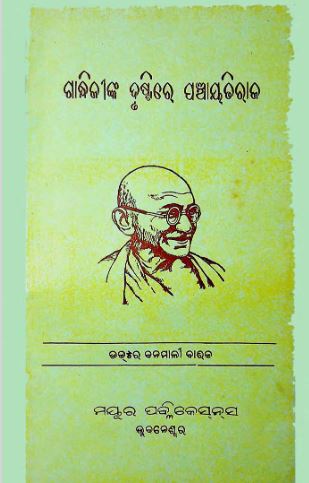Banamali Barik’s Odia essay book, “Gandhijinka Drustire Panchayatiraj,” which was published in 1996, likely delves into the principles of Panchayati Raj through the lens of Mahatma Gandhi’s vision and philosophy. Panchayati Raj refers to the system of local self-governance in India, where power is decentralized to the grassroots level, particularly to village councils or Panchayats.
In his essays, Barik may have explored how Gandhi’s ideas of Swaraj (self-rule), Sarvodaya (welfare of all), and Gram Swaraj (village self-governance) are embodied in the concept and practice of Panchayati Raj. Gandhi advocated for empowering rural communities and placing decision-making authority in the hands of the people living in those areas.
The book likely discusses the historical context and evolution of Panchayati Raj in India, examining its strengths, challenges, and potential for fostering participatory democracy and inclusive development at the local level. By drawing from Gandhian principles, Barik may have highlighted the significance of community participation, social justice, and sustainable rural development within the framework of Panchayati Raj.
Through “Gandhijinka Drustire Panchayatiraj,” readers may gain insights into how Gandhi’s philosophy continues to inspire policies and practices related to local governance and community empowerment in contemporary India. The book could serve as a valuable resource for academicians, policymakers, and individuals interested in understanding the enduring relevance of Gandhian ideals in shaping grassroots democracy and rural development initiatives.While this overview provides a broad understanding of the themes likely explored in the book, for a more detailed and accurate analysis, it is recommended to refer directly to the original text.
Books Info
| Books name | Gandhijinka Drustire Panchayatiraj |
| Editor | Banamali Barik |
| No Of pages | 22 |
| Publisher | Mayur Publication |
| Publication | 1996 |
| Printed At | Sneha Press |
| Distributor | NA |

